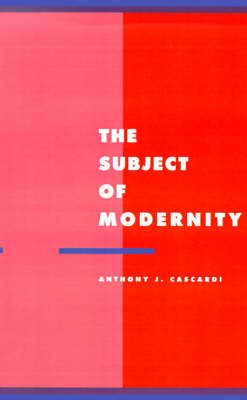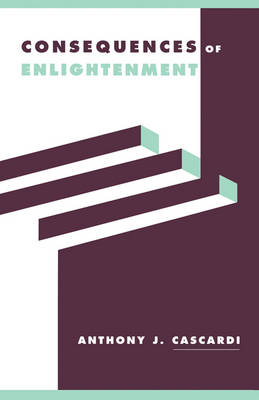Literature, Culture, Theory
2 total works
The question of modernity has provoked a vigorous debate in the work of thinkers from Hegel to Habermas. Our own self-styled postmodern age has seen no end to this debate, which now receives a major and wide-ranging intervention from the theorist and critic Anthony J. Cascardi. Offering an historical account of the origins and transformations of the rational subject or self as it is represented in Descartes, Cervantes, Pascal, Hobbes and the Don Juan myth, he carries his argument across the fields of epistemology, literature, political science, religion and psychology. The modern subject proves to be positioned within conflicting discourses, in a culture characterised by its 'detotalised totality'. Max Weber's concept of 'world disenchantment' enables Cascardi to make a searching critique of modernity's sense of its absoluteness, divorced from an archaic, 'enchanted' world. He advocates in its place a more fruitful relationship between historical analysis and theoretical speculation, offering constructive new alternatives to current orthodoxy regarding subjectivity and modernity.
What is the relationship between contemporary intellectual culture and the European Enlightenment it claims to reject? In Consequences of Enlightenment, Anthony Cascardi revisits the arguments advanced in Horkheimer and Adorno's seminal work Dialectic of Enlightenment. Cascardi argues against the view that postmodern culture has rejected Enlightenment beliefs and explores instead the continuities contemporary theory shares with Kant's failed ambition to bring the project of Enlightenment to completion. He explores the link between aesthetics and politics in thinkers as diverse as Habermas, Derrida, Arendt, Nietzsche, Hegel, and Wittgenstein in order to reverse the tendency to see works of art simply in terms of the worldly practices among which they are situated.

